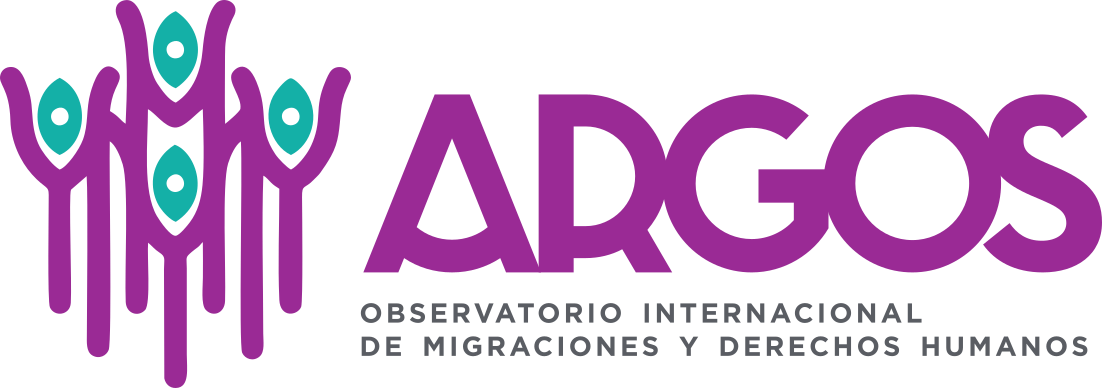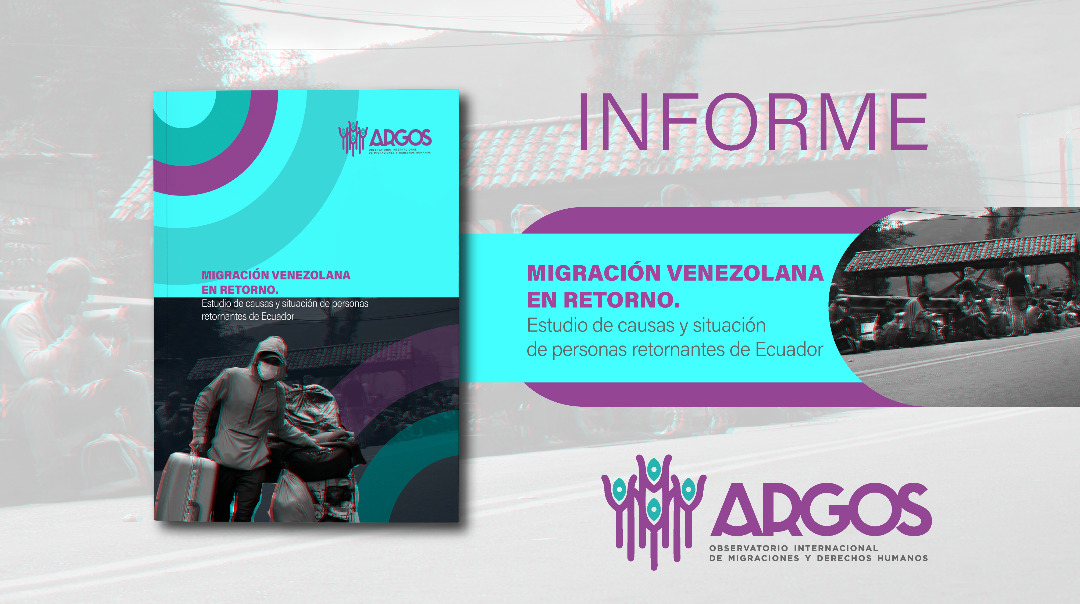Introduction
The Venezuelan migration phenomenon has been at the center of the front pages of multiple media outlets in recent years. It has been presented as one of the most important “displacement crises” in the world today, although the true magnitudes of the phenomenon are the subject of debate due to its high levels of politicization, as well as the economic interests that revolve around this process.
Less well known is the phenomenon of the return of the Venezuelan migrant population as a consequence of the impossibility of the economies of the Latin American region to absorb this labor force, as well as the economic crisis generated by the COVID-19 pandemic. Although this process does not generate so many headlines, it is also part of reality, to the point that the Regional Response Plan for Refugees and Migrants of Venezuela 2021 (whose?) recognizes the existence of 174,000 returnees, as well as another 188,000 people in a pendular situation, that is, people who regularly enter and leave Venezuelan territory [1]. It has also been determined that a significant number of returnees have used irregular passages, especially to evade the restrictions imposed for the control of the pandemic.
In this context, the Venezuelan government launched the program called Plan Vuelta a la Patria, whose objective is to ensure the transfer of Venezuelan migrants who request repatriation through Venezuelan consulates located in American countries, generally by air, although there have also been trips by land and sea [2].
Under this program, a group of 99 Venezuelans from Ecuador returned to Venezuela on June 30. These were people who made their request to the Venezuelan authorities, who proceeded to organize a repatriation flight. On this occasion, in addition to the usual collection of information carried out by the corresponding consulate, a research group from the International Observatory on Migration and Human Rights – ARGOS applied a specific instrument that sought to obtain some additional data on the working conditions of these people while they remained in Ecuador, as well as other aspects with which it was intended to measure the level of social and labor inclusion of Venezuelan migration.
The research methodology was based on the application of a questionnaire of closed questions dealing with issues related to the personal migration process, labor inclusion, access to services and some basic personal data. The instrument was applied to a convenience sample of 29 people, who returned on the same flight of the Conviasa airline, owned by the Venezuelan State, upon arrival at the Simón Bolívar International Airport in Maiquetía, which serves the city of Caracas, Venezuela.
The analysis of the information allowed us to know that working conditions and access to basic services for citizen life were not within the reach of most of these people, which is related to the decision to return to Venezuela.
Some personal and family data
We begin with a brief description of the people who decided to cooperate with the study. Of the 29 people validly interviewed, we have 16 women and 13 men. Regarding their marital relationship, 41% said they were married or unmarried, 14% separated or divorced, 35% single, 7% widowed and 3% did not answer the question. All respondents are adults. In terms of age, 21% are over 60 years old, 35% are between 40 and 59 years old, 41% are between 20 and 39 years old, and 3% are under 20.
Graphic N° 1. Sex of the returned migrants

Source: Own elaboration
With regard to their educational level, 59% had completed secondary school and 28% had completed primary school, and only 3% had completed university. Some 10% of the sample declared that they had no education of any kind.
Graphic N° 2. Educational level of returned migrants

Source: Own elaboration
Addressing the question of offspring, 86% reported having children, while only 14% did not. Only 7% of those who reported having children reported that their children were born in Ecuadorian territory and were registered with Ecuadorian authorities. Finally, 10% reported having left children under 18 years of age in Venezuela at the time of migration, while the rest had children of legal age.
Migratory movement
All respondents had migrated between 2017 and 2021, according to the following table:
Graphic 3. Number of migrants by year of emigration 2017 – 2021.

Source: Own elaboration
The identity document used to migrate was the Venezuelan passport as reported by 59% of the cases, while the remaining 41% reported that they migrated only with the Venezuelan identity card.
As for the reasons for emigration, the majority stated that they did so to join family members and, in second place, for economic reasons.
Graphic N° 4. Reasons for emigrating to Ecuador

Source: Own elaboration
Other reasons include health, the need to discover a new place and sentimental reasons. It is worth noting that family reunification appears as a slightly more important reason (45%) than economic reasons (41%), which indicates the effect of the development of migration networks in recent years that end up facilitating the migration of more and more family members.
The legal status of the migrants interviewed can be summarized as follows: 66% of the people interviewed indicated that they were irregular immigrants, 28% were in regular status and only one had Ecuadorian nationality.
Graphic N° 5: Migratory status of Venezuelan returnees

Source: Own elaboration
Working conditions
The majority of the people who took part in the study reported working in Ecuador in some way, while only one person did not answer the question. Thirty-two percent stated that they had been employed in the private sector, 54% of the people stated that they were self-employed, while 24% were family helpers or unpaid family members.
Graphic N° 6. Employment status of Venezuelan returnees

Source: Own elaboration
When asked about the number of hours worked per day, 25% worked 5 hours or less, 32% worked between 6 and 8 hours, while 43% reported working between 12 and 14 hours. However, when asked about the days worked, 61% reported working every day of the week, 25% between 4 and 6 days, and 14% reported working 3 days or less.
Graphic N° 7. Number of hours worked by Venezuelan returnees
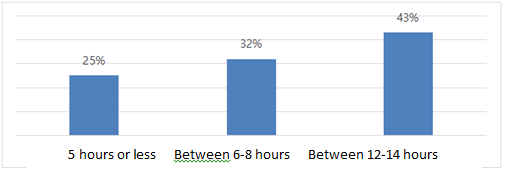
Source: Own elaboration
Graphic N° 8. Number of days worked by Venezuelan returnees

Source: Own elaboration
In relation to the income received, we asked whether or not it was adequate for the cost of living in the country of migratory destination. In this case, 61% indicated that they were insufficient for the cost of living, 14% recognized that there was no way to live on what they earned and 25% considered that they were sufficient for their needs. In addition to the economic conditions of the destination country, discrimination is presumed due to the migrant status, the high levels of informality in the workplace and the economic crisis itself generated by COVID-19.
Graphic N° 9. Financial resources for maintenance

Source: Own elaboration
Regarding the regularity of payments, 36% received income daily, 7% were paid weekly, 18% biweekly and 21% monthly, and 18% irregularly, including those who reported not working or being family helpers.
Graphic N° 10. Frequency of payment of salaries

Source: Own elaboration
Compliance with minimum legal criteria for the hiring of migrant workers was evaluated through a series of specific questions. In this case, 93% of the people did not have an employment contract, 4% stated that they did not know and 3% stated that they had an employment contract.
Graphic N° 11. Type of employment relationship

Source: own elaboration
With regard to employment benefits, none of the people interviewed received any compensation, not even those who reported having an employment contract.
When asked if their remuneration was equivalent to that received by Ecuadorian nationals, 21% said yes, while 79% said no, confirming discriminatory treatment based on the fact that they were immigrants. In addition, 54% indicated that their work was below their job qualifications.
Graphic N° 12. Equal salary treatment with nationals

Source: own elaboration
The living conditions of migrants often imply the need to have more than one job in order to increase their income. In this regard, it was found that 25% of the people had more than one job, while 75% had only one job. Even so, 82% reported having spent more than one month without any job, which is very complicated considering the high vulnerability usually associated with migrants.
Precisely because of their migrant status, it is often the case that the available jobs involve high levels of labor exploitation. Thus, despite the needs, some people were eventually forced to resign and change jobs. Thus, 43% of people resigned from their jobs in Ecuador, citing reasons such as labor exploitation, insufficient remuneration or irregular payment periods.
Likewise, migrant dismissals tend to be inexpensive for employers, due to the low level of qualification required for the work assigned, as well as the lack of legal protection they suffer, which means that they are not entitled to severance benefits. Thus, 32% of migrants were dismissed from some job while working in Ecuador, and the reasons given for such dismissals were related to the pandemic.
Access to public services and medical care for individuals and their families
Apart from work and the acquisition of basic consumer goods, daily life implies the need to access all kinds of services, which may be limited to the extent that migrants are restricted in their possibilities due to their legal status or income levels.
Health care is one of the most sensitive needs for migrants. In this case, 58% of those interviewed said that they were unable to access health services, while 425% said that they were able to access them. Only 7% of those surveyed were able to access private insurance. It is important to mention that only 24% of the returnees were able to be vaccinated against COVID-19.
Graphic N° 13. Access to health services

Source: Own elaboration
Graphic N° 14. Access to COVID-19 Vaccination

Source: Own elaboration
Educational services are also essential for migrants, especially if they travel or meet with their family groups. In this case, 38% of people reported having had access to education for themselves or for part of their family group, while the remaining 62% reported not having obtained this type of service.
Graphic N° 15. Access to education services

Source: Own elaboration
Public services, such as water, electricity or domestic gas, are of utmost importance for access to an adequate standard of living, and can be difficult to obtain if one does not have a regular migratory status. In this case, 35% of the people reported not having been able to contract any of these services, while the remaining 65% were able to do so, basically by paying bills in the name of former owners, given that they did not have legal leases or were not the holders of the contracts.
Graphic N° 16. Access to public services

Source: Own elaboration
With regard to mobile telephony, 52% were able to purchase lines in Ecuador, while 48% were unable to do so. Exactly the same occurred with the contracting of internet plans. It should be noted that in most cases these internet plans are nothing more than mobile telephony data plans.
Regarding banking services, which are fundamental for both self-employed and employed workers, it was determined that only 21% were able to open bank accounts in Ecuadorian financial institutions, while 79% were unable to do so. This information may be indicative of the informal work situation of many Venezuelan migrants in Ecuador.
Graphic N° 17. Access to mobile telephony services

Source: Own elaboration
Graphic N° 18. Access to banking services
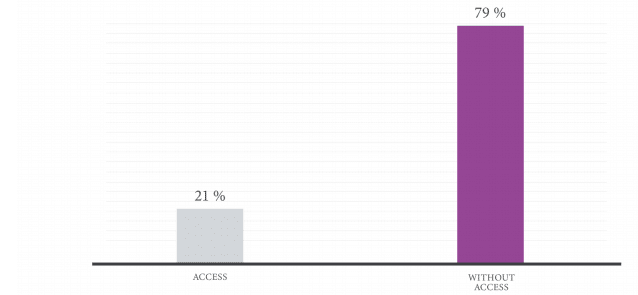
Source: Own elaboration
In general, the housing situation is critical in the case of migrants, and especially in the case of irregular migration. The most accessible option is renting rooms or shared housing. In this regard, 21% reported having signed a rental contract, while 72% could not sign any legal document to stay, while 7% stated that it was not necessary because they were staying in housing already rented by other family members.
Graphic N° 19. Situation of rental housing
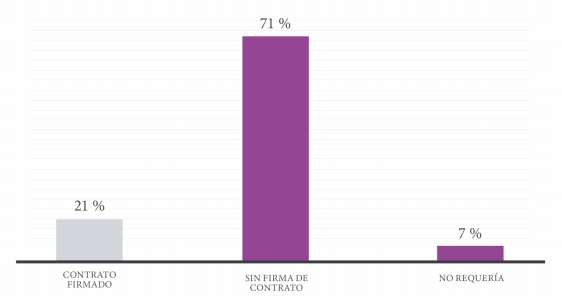
Source: Own elaboration
Allowances and economic support for Venezuelan migrants in the country of destination
According to the information provided by the returnees on the allocation of food, medicines and economic aid, it has been possible to determine the scarce support from the government of the destination country, as well as from civil society organizations and United Nations agencies. The lack of support for Venezuelan migrants that has materialized is striking, despite the great media coverage of fundraising spaces such as the one promoted by the governments of Canada and Colombia, among others, together with the IOM and UNHCR, which in their second and most recent donor conference said to have reached more than 1.5 billion dollars for this population [3].
Figure 20. Support and protection from the foreign government of the country of residence
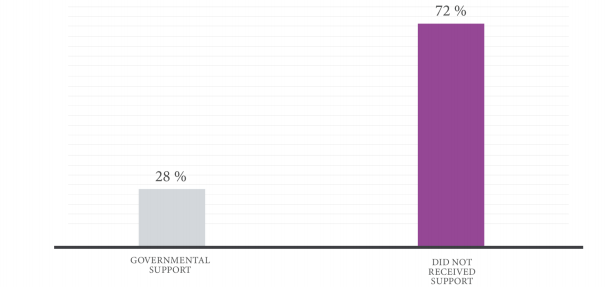
Source: Own elaboration
Graphic 21. Support and protection from civil society organizations in the country of residence

Source: Own elaboration
Graphic 22. Support and protection from UNHCR and IOM

Source: Own elaboration
Conclusions
The overall picture of this sample of returnees from Ecuador points to the high levels of labor insecurity and living conditions to which migrants of Venezuelan origin are subjected, which explains to a large extent why many of them choose to return to Venezuela, as has been the case over the last two years.
The fact that 76% of the respondents were adults between 20 and 59 years of age (35% between 40 and 59 years of age and 41% between 20 and 39 years of age) is an indication that most of the returnees are persons of an age qualified as “active population”, that is, in conditions to reintegrate into the national labor market. This is reinforced by the fact that the majority of the sample reported not having decent working conditions in Ecuador.
According to the interviews conducted, most of the people surveyed, in addition to living in the receiving country in an “irregular migratory situation”, were also exposed to informal and unfavorable working conditions, working seven days a week, without an employment contract (93% without an employment contract), and with insufficient income (73% of the people surveyed earned less than Ecuadorian nationals for the same work).
Another indicator to consider, from the labor point of view, is the sustained decrease of Venezuelans leaving the country. Most of those surveyed left in 2018 (12), a year of fierce attacks against Venezuela, but from that year on, a steady decline in the number of departures began. This data, at a time of clear economic recovery in Venezuela, could be a clear sign of a gradual reversal of greater return of Venezuelans and less migration to other countries, which is also susceptible to an interpretation about the current visibility of the new conditions of the country as an attractive labor market for Venezuelan nationals, compared to the precarious working conditions in the receiving countries for this segment of the Venezuelan migrant population.
Two factors must also be considered for the design of public policies to assist returnees: the educational level of the returnees and the labor sector in which they were working in the receiving country. In the case of this sample, again of convenience type, almost all the interviewees stated that they had not completed university studies and were working in Ecuador in the informal sector of the economy.
In addition, informality permeated every aspect of the migrants’ lives, not only in the labor sphere. Generally, these people did not have a rental contract or the possibility of contracting public services, nor could they open a bank account. In addition, they had no possibility of accessing public health services, nor access to private health insurance, due to income restrictions.
Two other data emerge from the results, which could be considered for the design and implementation of public policies for the care of returned Venezuelan migrants: restricted access to the vaccine against COVID-19 and to education services. Seventy-six percent of those interviewed did not have access to the vaccine and 62% did not have access to education services for themselves or members of their family group.
Finally, it is important to highlight the precarious support received by NGOs and multilateral representations in the receiving country, which is perceived by the Venezuelan migrant subject. The fact that 72% of those interviewed stated that they did not receive any type of help, shows their awareness of the lack of willingness of NGOs, organizations and governments to cooperate or provide direct assistance to Venezuelan migrants, despite the media campaign in this regard.
References
[1] Available at: https://www.r4v.info/es/home
[2] Available at: https://www.telesurtv.net/news/venezuela-repatriacion-plan-vuelta-patria-maritimo-20210717-0006.html
[3] Available at: https://www.france24.com/es/minuto-a-minuto/20210617-recaudan-m%C3%A1s-de-usd-1-500-millones-en-conferencia-para-atender-%C3%A9xodo-venezolano
